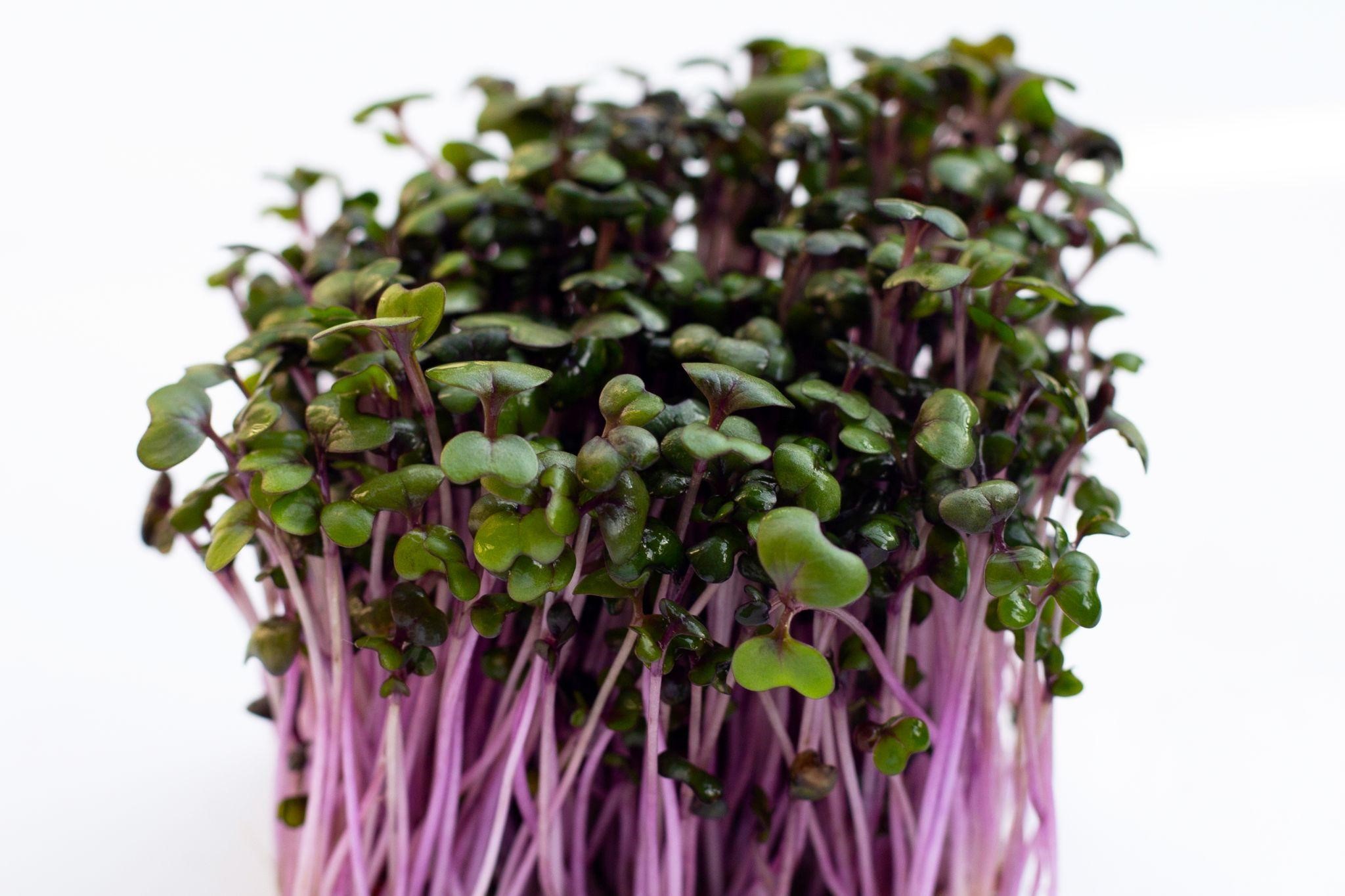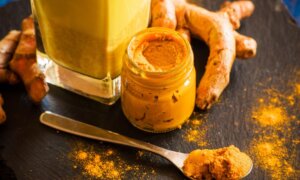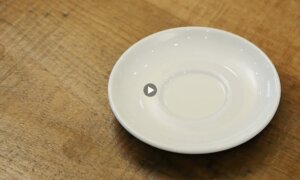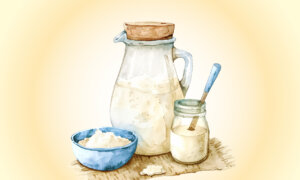After contracting hepatitis B, Zhang Weijun, the fifth-generation successor of the esteemed Taiwanese traditional Chinese medicine (TCM) family Huai Sheng Tang and director of the Taichung Ji Sheng TCM Clinic, explored numerous herbal remedies on his quest for a natural cure. After eating two specific types of sprouts for three months, his hepatitis B viral test results came back negative, and his fatty liver condition also healed.
On NTDTV’s “Health 1+1,” Zhang shared insights into the therapeutic benefits of two types of sprouts—red cabbage and broccoli—that strengthen the liver, aid detoxification, and may help prevent cancer.
A Personal Experience With Hepatitis B
Hepatitis B is caused by the hepatitis B virus and can progress to chronic hepatitis and eventually lead to liver cirrhosis or liver cancer. In the past, Taiwan had a high prevalence of hepatitis B infections, with common transmission routes including blood transfusions, shared needles, and mother-to-child transmission during childbirth.
Zhang revealed that he was diagnosed with hepatitis B during a routine health examination before military enlistment. He said he believes that the infection likely occurred in childhood because of shared needles during medical injections.
“For more than 30 years of living with hepatitis B, I experienced no symptoms at all. It was only during health checkups, through liver ultrasounds, that mild fatty liver ... was detected,” he said.
“For the past 20 years, I have been exploring natural remedies to manage this stubborn disease. Inspired by the ancient spirit of Shennong, who tasted hundreds of herbs, I systematically tested various traditional Chinese herbs and foods, trying them one by one. Every three months, I checked my viral load and liver enzyme levels.
“In 2013, I started consuming red cabbage sprouts and broccoli sprouts. After three months, a follow-up examination revealed that my hepatitis B carrier status had turned negative, and my viral load had dropped to zero. The lab technician was so astonished by the results that they initially thought it was a mistake. Since then, my fatty liver condition has also completely resolved.
“Many of my peers and patients, who are also hepatitis B carriers, have achieved positive results after trying this approach.”
Zhang also mentioned that a patient recently visited his clinic and reported a negative hepatitis B viral status after following the sprout-based diet therapy.
The Health Benefits of Sprouts
Red cabbage and broccoli are both cruciferous vegetables and are rich in a variety of plant-based compounds with antiviral and anticancer properties, Zhang noted.
Research indicates that young sprouts contain significantly higher concentrations of phytochemicals. For example, broccoli sprouts contain
10 to 100 times more sulforaphane—a sulfur-rich compound—than mature broccoli.
In recent years, a growing body of research has demonstrated the health benefits of compounds found in cruciferous vegetables, including liver detoxification and cancer risk reduction.
Promotes Liver Health
A
systematic review showed that sulforaphane, a compound found in cruciferous vegetables, can boost levels of glutathione—a substance critical for detoxification in the liver—thereby reducing oxidative stress caused by toxic substances. It also helps protect the liver from damage by carcinogens.
Another review reported that quercetin, found in broccoli, has detoxifying effects against aflatoxins, carcinogens known for their high liver toxicity.
Reduces Cancer Risk
Chronic hepatitis B patients have a higher risk of developing liver cancer, with
studies estimating that more than half of liver cancer cases worldwide are attributable to hepatitis B.
Sulfur compounds found in cruciferous vegetables are known for their anticancer properties. A review found that sprouts contain higher concentrations of these compounds. In one of the animal studies in the review, three-day-old broccoli sprouts were most effective in suppressing breast cancer cells.
A comparative study revealed that compared with mature red cabbage, juice from young shoots demonstrated more potent inhibitory effects on prostate cancer cell proliferation in vitro and contained higher levels of vitamin C and carotenoids.
A 2019 study published in Science shed light on the anticancer mechanisms of cruciferous vegetables. Cancer can develop, in part, because of the impaired function of the body’s tumor-suppressing mechanisms. Cruciferous vegetables contain glucobrassicin, which breaks down into indole-3-carbinol (I3C) during digestion. I3C has been shown to help reactivate tumor-suppressing factors in the body, giving these vegetables the potential to aid in cancer prevention and treatment.
Preparation Methods
Zhang shared two preparation methods for eating sprouts to maximize their health benefits.
Salad
Eating raw red cabbage sprouts or broccoli sprouts as part of a salad, paired with cold-pressed extra-virgin olive oil, is simple to prepare and highly nutritious. Because sulforaphane is
fat-soluble, eating it with healthy fats helps enhance absorption.

One way to eat sprouts is in salad. (The Epoch Times)
Soup
Another great way to boost your sprout intake is by sprinkling sprouts in soup. You can make chicken soup with fresh ginger, then add red cabbage sprouts or broccoli sprouts as the final step while the soup cooks.
Briefly blanching the sprouts can release sulforaphane, enhancing its absorption. However, avoid prolonged heating, as it may degrade the nutrients. Additionally, the fats in chicken with skin can improve the absorption of fat-soluble nutrients from the sprouts.

Sprout chicken soup. (The Epoch Times)
Zhang mentioned that he usually purchases four boxes of sprouts at a time, consuming half a box per meal, once or twice a day.
According to TCM theory, sprouts are considered cooling in nature. Eating too many sprouts may lead to gastrointestinal discomfort for those sensitive to cold or prone to diarrhea. The body tolerates cold foods better at noon, making lunch an ideal time to include them. If you choose to eat them at all three meals, one-third of a box per serving is sufficient.
To keep sprouts fresh, take out the portion needed for the meal and store the remainder in the refrigerator.
Precautions
While eating raw sprouts offers many health benefits, they may not suit everyone. Raw cruciferous vegetables can interfere with thyroid hormone synthesis, so people with hypothyroidism or iodine deficiency-related goiter should avoid consuming them raw, according to Zhang. On the other hand, for those with hyperthyroidism, eating raw cabbage sprouts or broccoli sprouts may help suppress thyroid function.
A systematic review indicated that consuming large amounts of raw cruciferous vegetables, such as cabbage and broccoli, may negatively affect thyroid function. However, the researchers noted this was not conclusively proven. Cooking these vegetables, however, can help reduce this effect.
Liver Toxins
In addition to consuming sprouts to support liver health, chronic hepatitis patients should also avoid foods that may harm the liver. Moldy peanuts, nuts, and grains can produce
aflatoxins, which damage liver cells and increase the risk of cirrhosis and liver cancer.
Zhang cautioned against storing peanut butter and peanut powder for extended periods to prevent accidental ingestion of aflatoxins. It is also advisable to purchase white rice in small packages and avoid storing it in humid or hot environments for prolonged periods.
Processed foods are often loaded with additives and unhealthy fats, which increase the burden on the liver. Processed meats, in particular, may produce nitrosamines—compounds harmful to the liver and potentially linked to digestive system cancers.
Eating too quickly, overeating, or overindulging in cold beverages and sweets can disrupt digestion. Poor digestion can cause food to ferment in the intestines, producing toxins that place additional strain on the liver’s detoxification processes.
The Dangers of Hepatitis B Infection
The symptoms of acute hepatitis B infection often resemble those of a common cold, including fatigue, upper abdominal discomfort, loss of appetite, and, in rare cases, jaundice. The acute phase is usually brief, with symptoms resolving quickly, although some patients may develop a chronic condition.
After contracting hepatitis B, patients may experience the “hepatitis–cirrhosis–liver cancer” progression. Although some carriers remain asymptomatic throughout their lives, others develop chronic liver inflammation over time, which can lead to fibrosis. If left untreated, this condition may eventually progress to cirrhosis and, in severe cases, liver cancer.
A study conducted in the United States showed that chronic hepatitis B patients had a 30-fold higher incidence of hepatocellular carcinoma, with the risk of other cancers, such as gastric cancer, also being significantly increased.
Zhang recommended that to mitigate this risk, hepatitis B carriers undergo liver function tests and liver ultrasounds every six months. Any issues detected should be promptly addressed and treated.




















